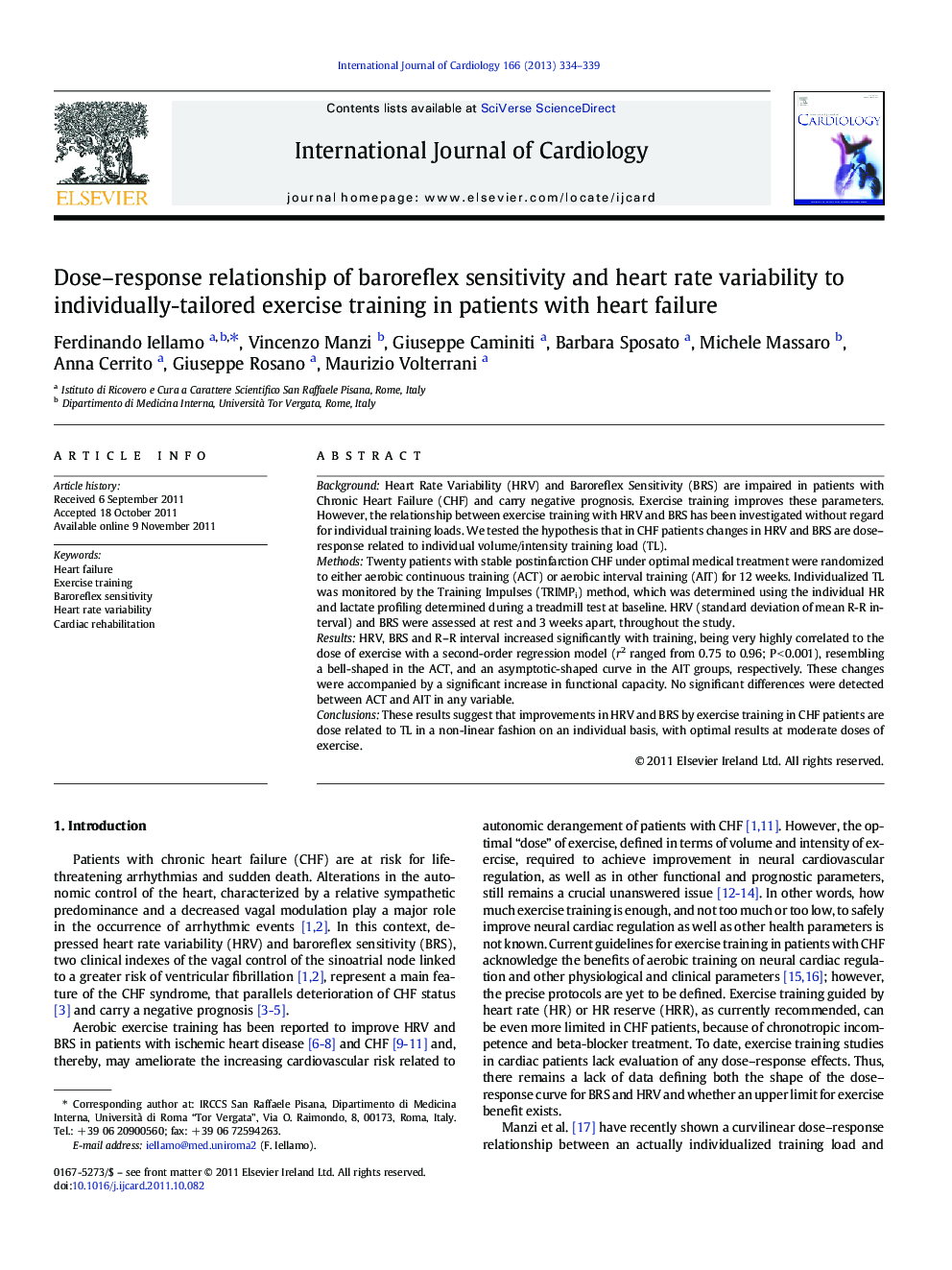| Article ID | Journal | Published Year | Pages | File Type |
|---|---|---|---|---|
| 5976378 | International Journal of Cardiology | 2013 | 6 Pages |
BackgroundHeart Rate Variability (HRV) and Baroreflex Sensitivity (BRS) are impaired in patients with Chronic Heart Failure (CHF) and carry negative prognosis. Exercise training improves these parameters. However, the relationship between exercise training with HRV and BRS has been investigated without regard for individual training loads. We tested the hypothesis that in CHF patients changes in HRV and BRS are dose-response related to individual volume/intensity training load (TL).MethodsTwenty patients with stable postinfarction CHF under optimal medical treatment were randomized to either aerobic continuous training (ACT) or aerobic interval training (AIT) for 12Â weeks. Individualized TL was monitored by the Training Impulses (TRIMPi) method, which was determined using the individual HR and lactate profiling determined during a treadmill test at baseline. HRV (standard deviation of mean R-R interval) and BRS were assessed at rest and 3Â weeks apart, throughout the study.ResultsHRV, BRS and R-R interval increased significantly with training, being very highly correlated to the dose of exercise with a second-order regression model (r2 ranged from 0.75 to 0.96; PÂ <Â 0.001), resembling a bell-shaped in the ACT, and an asymptotic-shaped curve in the AIT groups, respectively. These changes were accompanied by a significant increase in functional capacity. No significant differences were detected between ACT and AIT in any variable.ConclusionsThese results suggest that improvements in HRV and BRS by exercise training in CHF patients are dose related to TL in a non-linear fashion on an individual basis, with optimal results at moderate doses of exercise.
